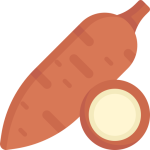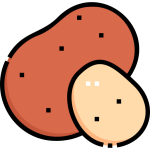Banana Component
Home > Banana Component
BANANA component aims to establish economically viable banana seed systems in Ghana, Nigeria, Rwanda, Tanzania, and Uganda by applying innovative approaches to tissue culture, macropropagation, and nursery enterprises. The key points are as follows:
- Vision: The project aims to develop a functional formal banana/plantain seed sector that delivers high-quality commercial seed of preferred varieties to farmers in sub-Saharan Africa. It builds on previous projects and ongoing breeding initiatives to diversify available banana varieties and deliver genetic gains.
- Two Seed Distribution Models: The project envisions two primary models for banana/plantain seed distribution: a 2-step model involving tissue culture laboratories and commercial nurseries, and a 3-step model involving macro-propagation as an intermediary stage. Both models include the establishment of mother gardens.
- Technological Innovation: Research will focus on improving propagation techniques, nursery management, and field management to ensure sustainable seed production. This includes optimizing tissue culture, macro-propagation, and nursery methods, as well as exploring the potential of Arbuscular Mycorrhizal Fungi (AMF) for enhancing planting material quality.
- Marketing Innovation: Marketing strategies will aim to create awareness of new seed formats and promote the benefits of clean seed. Research experiments will be conducted to quantify the impact of marketing strategies, including radio programming, social media engagement, and local methods. Business case assessments will be conducted to understand the profitability of seed production.
- Institutional Innovation: The project aims to formalize the banana seed value chain with well-defined seed classes and roles for different actors. This includes researching appropriate coordination mechanisms, institutional arrangements, and certification standards. Stakeholder consultations and policy dialogues will be piloted to promote formal seed systems.
- Theory of Change: The project envisions that technological innovations will lead to higher multiplication ratios, reduced costs, and improved seed quality. Marketing strategies will drive behavioral shifts in seed purchasing, and institutional innovations will ensure stakeholder engagement and quality assurance, ultimately increasing the adoption of improved banana/plantain varieties.
In conclusion, the banana component seeks to transform the banana seed sector in multiple African countries through technological, marketing, and institutional innovations. The goal is to increase the availability and adoption of high-quality seed varieties, benefiting farmers and enhancing food security in the region.




